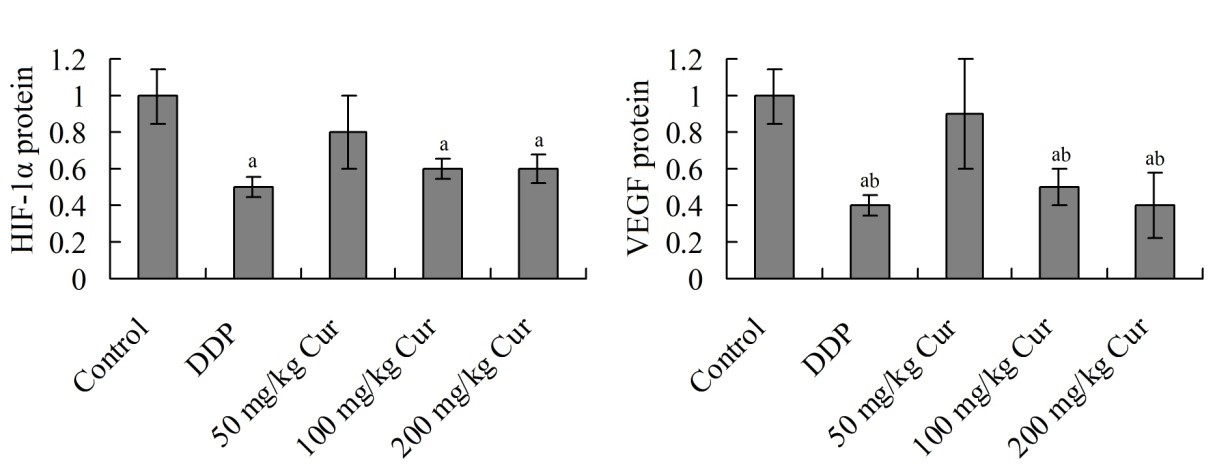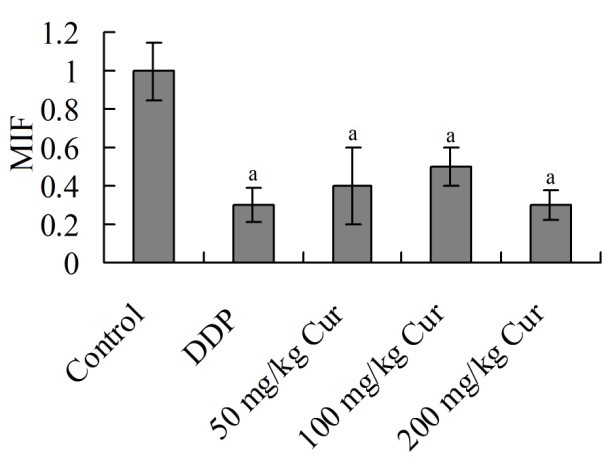Abstract
The present study investigated the effects of curcumin (Cur) on growth of human cervical cancer xenograft in nude mice and underlying mechanism. The nude mice modeled with human cervical cancer HeLa cell xenograft were treated with normal saline (control), 3 mg/kg Cisplatin, 50, 100 and 200 mg/kg Cur, respectively. The animal body weight and growth of tumor were measured. The expressions of Bax, Bcl-2, p53, p21, HIF-1α, VEGF and MIF protein in tumor tissue were determined. Results showed that, after treatment for 20 days, the tumor mass and tumor volume in 100 and 200 mg/kg Cur group were significantly lower than control group (P < 0.05). The expressions of Bax, p53 and p21 protein in tumor tissue in 200 mg/kg Cur group were significantly higher than control group (P < 0.05), and the expressions of Bcl-2, HIF-1α, VEGF and MIF protein in tumor tissue in 200 mg/kg Cur group were significantly lower than control group (P < 0.05). Cur can inhibit the growth of HeLa cell xenograft in nude mice. The possible mechanism may be related to its up-regulation of Bax, p53 and p21 protein expression in tumor tissue, and down-regulation of Bcl-2, HIF-1α, VEGF and MIF protein expression.
Keywords:
curcumin; cervical cancer; xenograft; nude mice

 Thumbnail
Thumbnail
 Thumbnail
Thumbnail
 Thumbnail
Thumbnail
 Thumbnail
Thumbnail



